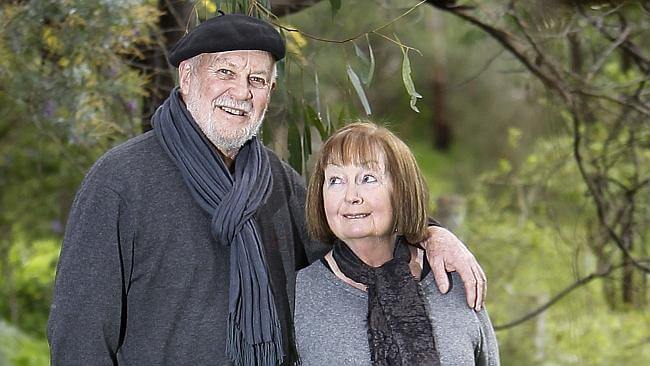Drugs aim to replicate miraculous ‘spontaneous remission’ in cancer patients
Source: Herald Sun, August 31

Source: Herald Sun
DOCTORS had never seen a patient so riddled with cancer dissolve their tumours, without treatment.
Victorian Suzanne Reynolds, who had melanoma in her brain, sinus, bone and gallbladder, went into an incredibly rare ‘spontaneous remission’ where her own immune system fired up and killed the cancer.
Now, more than a decade later, there are drugs that replicate this astonishing occurrence in a revolutionary new approach to cancer treatment called immunotherapy.
Hailed as the fourth weapon to fight cancer, alongside surgery, chemotherapy and radiotherapy, it harnesses the healing power of the immune system to help rid the body of cancerous cells.
In an Australian-first, the Olivia Newton John Cancer and Wellness Centre at Austin Hospital will next week open an immunotherapy clinic enabling patients to not only access two melanoma drugs, but also give other cancer sufferers the chance to take part in clinical trials for other therapies.
Austin Health Cancer Services Medical Director Professor Jonathan Cebon said this new approach to treating cancer was a “gamechanger.”
“These treatments work by stimulating the immune system, they are shrinking patient’s tumours and leading to long term survival.”
Prof Cebon, who is also the director of the Ludwig Institute for Cancer Research, said 11 immunotherapy trials were underway in Heidelberg for melanoma, lung, blood and prostate cancers.
Olivia Newton John said that unlike chemotherapy or radiation, which can weaken your body’s immune system when you need them the most, immunotherapy boosts your natural defences helping to keep cancer under control or even eliminate it outright.
“Finally there is new hope in those who long to be free of cancer, amazingly it has been there all along right in our own bodies,” Newton-John said.
Mrs Reynolds said it was amazing to know that medical researchers were developing drugs that appeared to mirror what had happened to her naturally.
It’s still hard for her to believe that she was diagnosed with stage four melanoma and given less than a year to live, until her body slowly began dissolving the tumours.
Within six months almost all the cancer was gone, leaving doctors baffled.
It has been almost 15 years and she is still cancer free.
Victorian melanoma survivor Daniel Morrissey was diagnosed with stage four melanoma in 2002, but secured a spot in a clinical trial for Yervoy (ipilimumab).
Within months the tumour in his lung had shrunk by 80 per cent and when surgeons went in to cut the remaining piece out, they discovered that the treatment had starved it to death.
Although immunotherapy was extremely promising, Prof Cebon said more research was required to develop more therapies.
“Immunotherapy is an emerging, promising and effective treatment, but we have not reached the end game yet- the only way we can expand the efficacy is to continue to do clinical trials,” Prof Cebon said.
